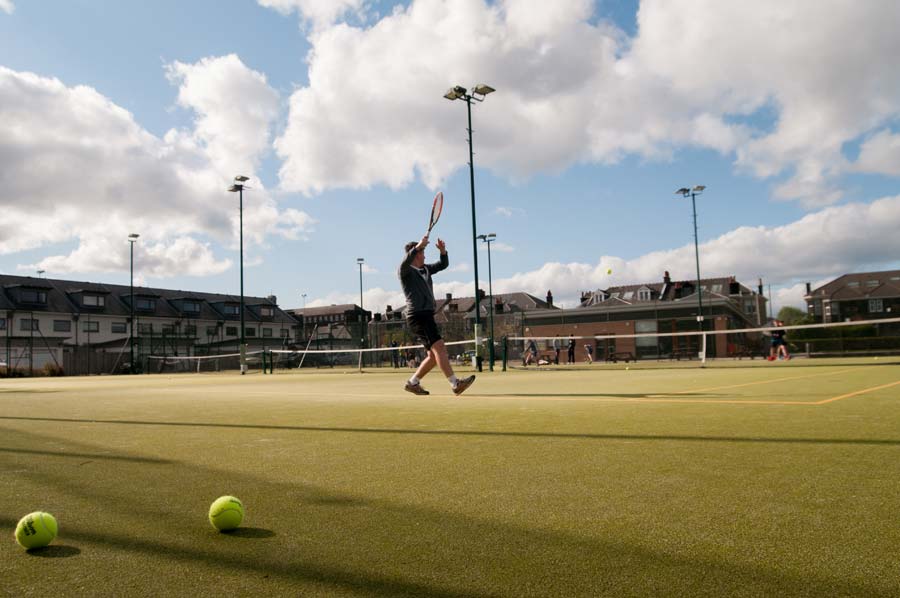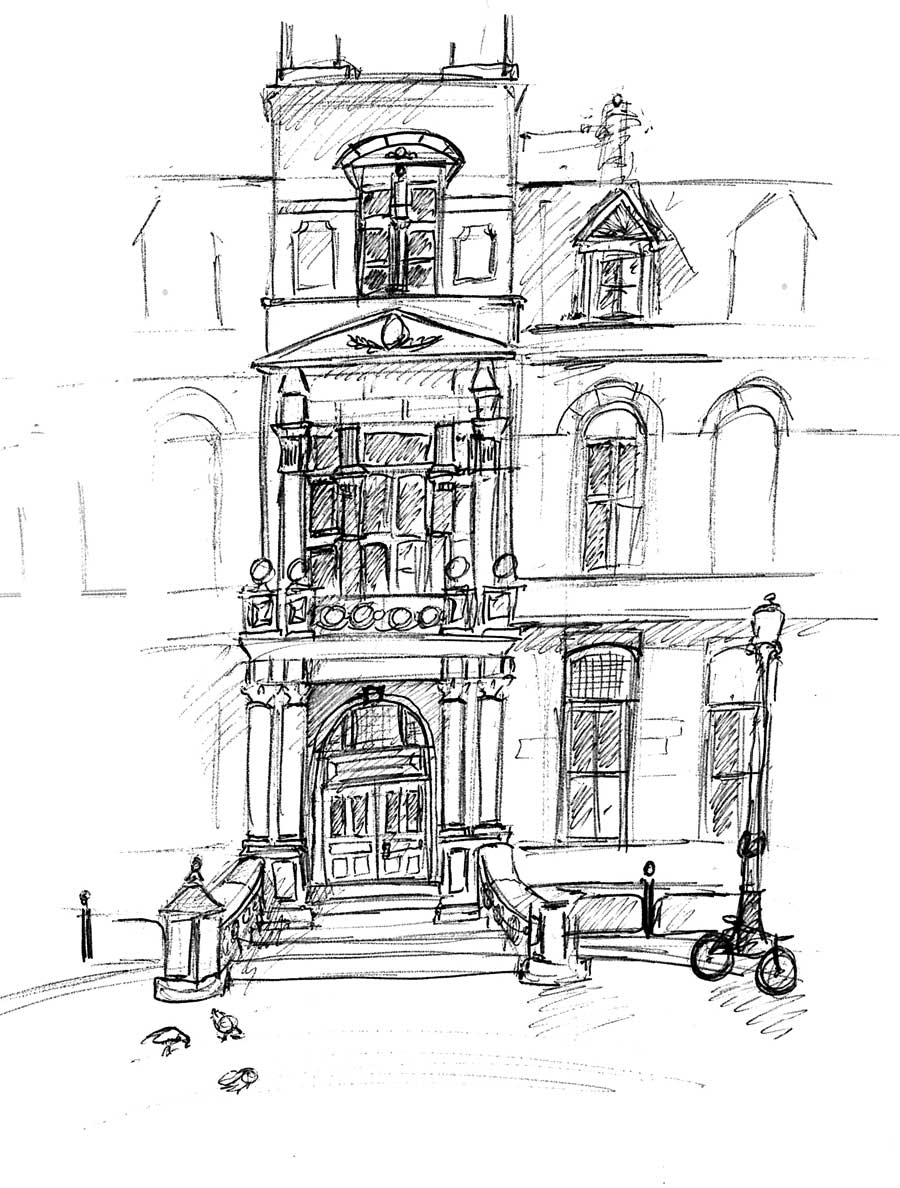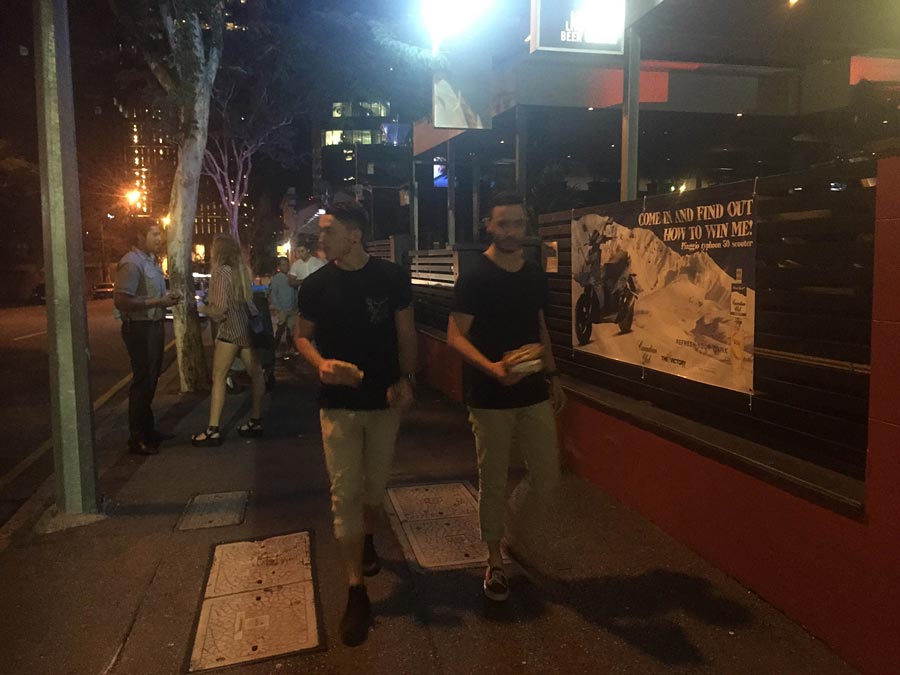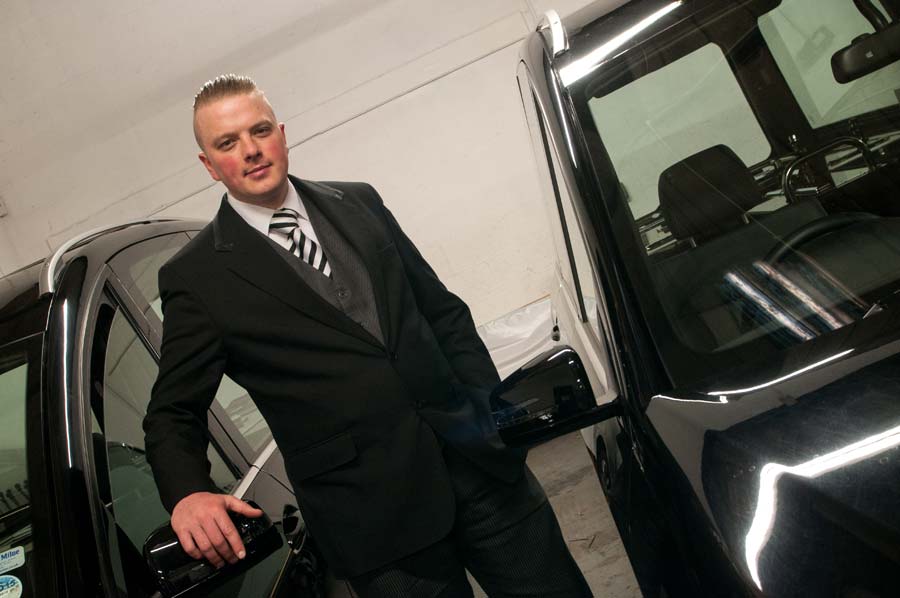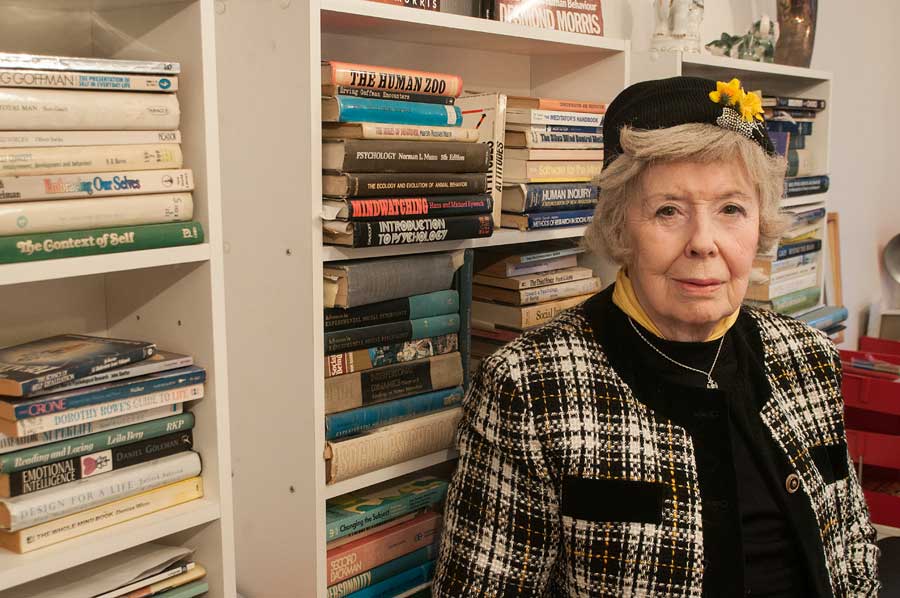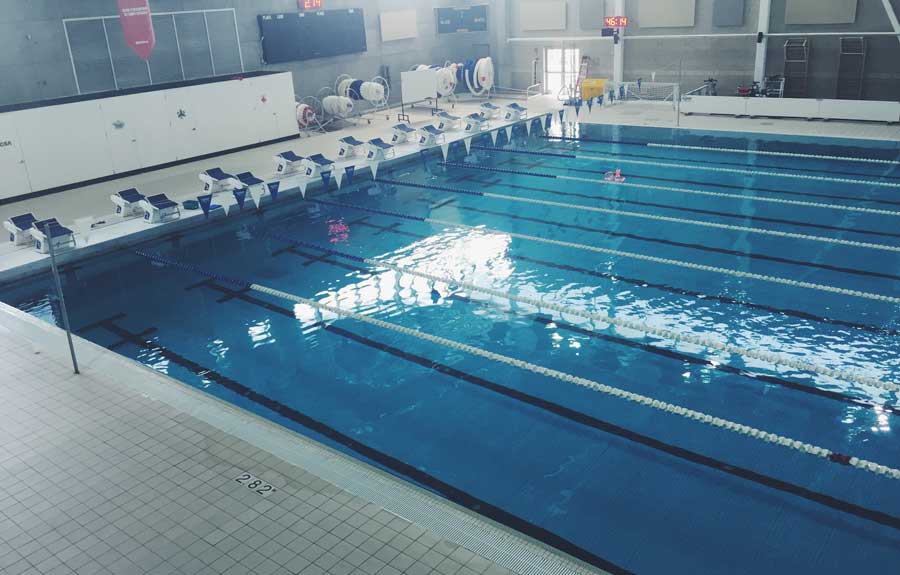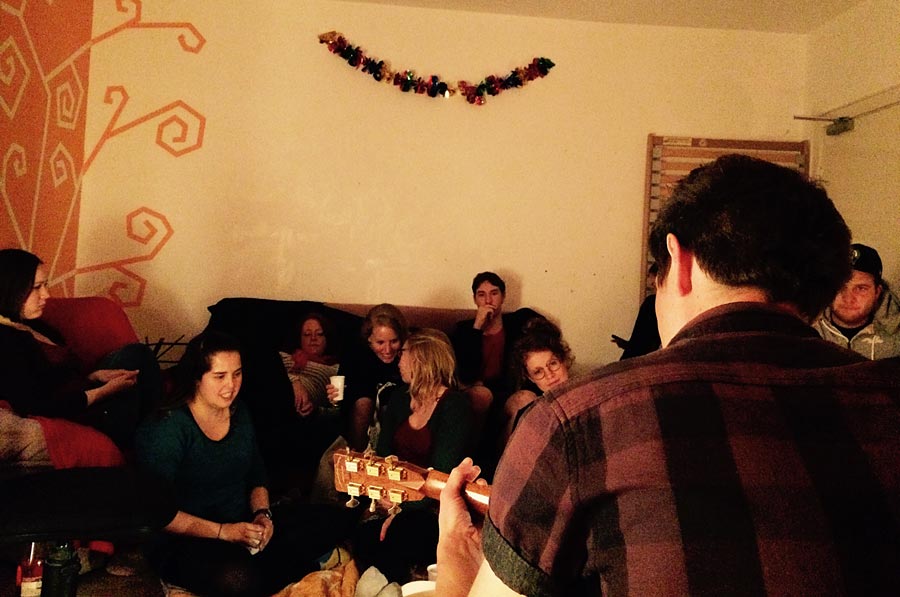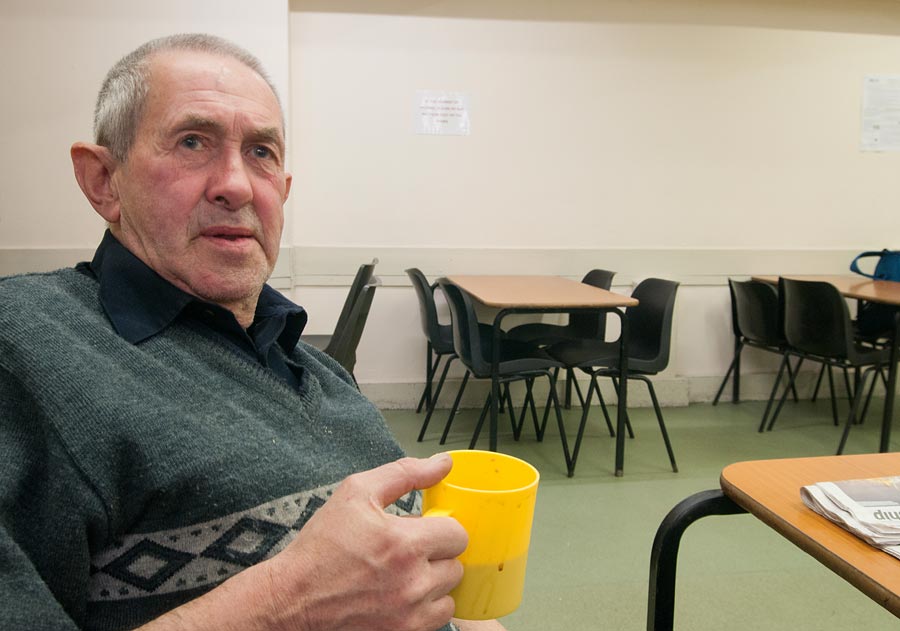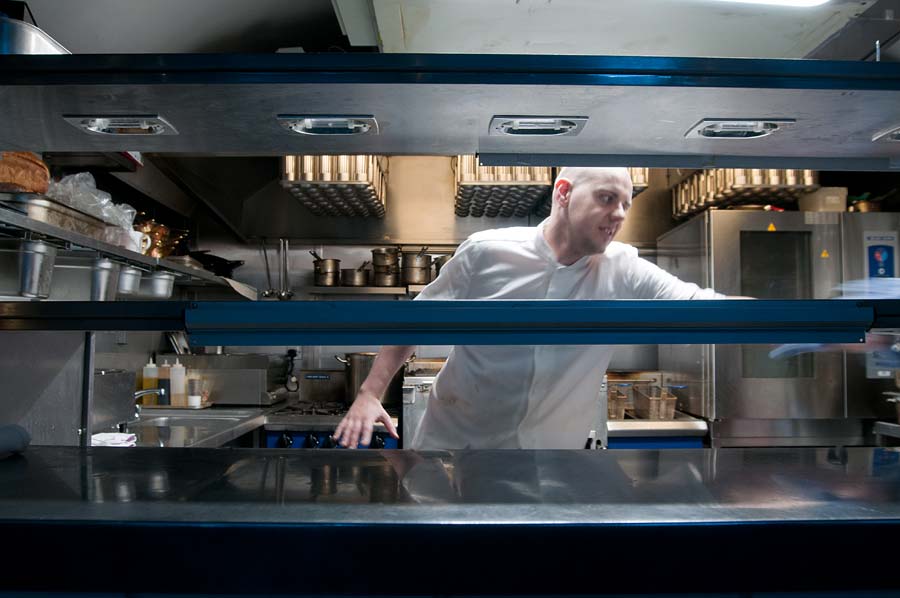Politics is about people – or so politicians repeatedly tell voters. But what are the people actually doing outside a political bubble?
Tomorrow reporters spread across the city of Glasgow between 5pm and 10pm on May 7 during the final hours of voting in the 2015 UK general election.
We asked no political questions or even confirmed whether individuals had voted.
Along with our athlete and artist in residence and reporters in Australia in Germany, this is news of a time to put political space in context.
5.19pm – Woodend Bowling and Lawn Tennis Club, Jordanhill, Glasgow
Andrew Bodie is at his weekly tennis class where he has been attending for three years.
Inspired by Andy Murray from a young age, he decided to go along to his local Woodend Bowling and Lawn Tennis Club, though it’s rugby where he is considering a professional career, already playing for Glasgow Hawks.
“I like that it’s a sport where people are not really competitive,” the 15-year-old told Tomorrow. “It’s just a good atmosphere. When you’re playing at my level, you’re doing it for fun. It’s a break from your normal life.
“I don’t see myself doing it professionally. I was looking at marine biology or maybe playing a bit of professional rugby.”
Andrew’s coach, Chris Chapman, has been playing tennis since he was “four or five” through his mum, also a coach. He teaches up to 25 group lessons a week with 150-200 young people.
“It’s quite an easy sport,” he said. “It only requires two people to play. It’s mainly a summer and spring sport and there’s not enough indoor facilities so that doesn’t help.
“Andy Murray brings people in, but once you try it, if you like it, you tend to stick with it. This group has a bit of fun. I would hope most groups get a benefit and my job is to make them technically better.”
5.20pm (1.20pm local time) – Halifax, Nova Scotia
Tomorrow artist in residence, Jason Skinner, created this sketch during his lunch break in Halifax’s Parade Square.
“Spring has finally arrived in the Maritimes, and I took full advantage,” he said. “I sat facing City Hall, leaning against the monument honouring fallen public service workers and scribbled ‘business as usual’ while sharing my crumbs with the pigeons.”
6.30pm – Govanhill Baths Community Trust, Glasgow
The main pool in Govanhill Baths has been empty of water since 2001 when Glasgow City Council closed the facility, against significant opposition from the local community.
Now run by Govanhill Baths Community Trust with plans to gradually reopen the vast and diverse spaces, it has to date failed to win any confirmed money from any level of government.
Last month, it had to vacate its charity shop space after being unable to meet rent of around £13,000 a year after a 50 per cent discount over the past 12 months.
For the chairman of the trust, Andrew Johnson, as he closed up the shop for the last time, there was the pain of seeing a Romani woman going through the bags of items left outside. Some items from the shop are now being stored in the main pool.
“There was a woman pulling through these green bags,” he said. “That sums up – scavenging would not be the right word – but I had to say, ‘You can’t do that’, and I felt terrible about it. She was reduced to having to go through the bags from a charity shop and I had to go to some boring middle class meeting.
“There was a serious unfairness in closing a health-giving facility in Govanhill. For the council to close it was a dastardly act.”
The pool should be open until 9pm on a weeknight, as it once was. Now, the only sound is from an arts festival being prepared in other parts of the building and the noises of Calder Street and beyond ringing through the glass ceiling.
Swimming classes should be at the pool to reduce drownings, as was the original intention of the baths, said Mr Johnson. But the current plan would not see the main pool re-open until 2020 potentially. The next phase would restore the learners’ pool and ladies’ pool, gym, Turkish sauna, healthy eating cafe and garden growing area, while the old Steamie would continue its development as a theatre space. Millions of pounds have been committed from different trusts and agencies, but they are still £1/2 million short.
“It’s about what’s right and what’s wrong,” added Mr Johnson.
7pm – Glasgow Women’s Aid refuge
Domestic abuse is an issue which, it could be argued, affects many more people than the statistics show.
Many women find themselves in situations where they need a little help and guidance to escape from various situations, and Glasgow Woman’s Aid (GWA) aims to offer just that.
The building which houses GWA’s refuge offers no outward sign of the lives of its inhabitants, just as it is intended. The organisation offers 38 spaces for women with many of these spaces also suitable for children.
Catriona Paterson, who is a key member of staff at the organization, states that the aim of the service is to offer women the time, space and tools they need in order to help them recover from their experiences and help them rebuild the life which has been taken from them.
“We are here to empower each woman as an individual,” she told Tomorrow. “We want to help a woman to find herself and reach her potential, despite what has happened to her. We are here for emotional and practical support. We want people to feel they are living here, not simply existing.”
Many may assume that once out of an abusive situation that women can simply begin to rebuild their lives. But this is not always the case.
“Feeling safe is the main thing,” said Ms Paterson. “Everything else can be done with support. Women are more at risk immediately after leaving an abusive situation, so safety is the most important thing, we have CCTV, locks on every door and there is an on call system, which allows contact with a key worker.”
She added that although there are many cases of domestic abuse, many women never speak out: “People think abuse happens rarely but it doesn’t, it happens all the time, most women are made by their abuser to feel like it’s their fault, some women never disclose to others, it permeates across society, it effects your family, friends, education, employment, it effects everything.“
Jenny – whose name Tomorrow has changed to protect her identity – has faced many difficulties in her 24 years and escaped from an abusive relationship in recent weeks.
“I don’t have any family – if I wasn’t here I don’t know where I would be,” she said. “I have a few friends but in the situations I’ve been in, it’s hard to maintain friendships. It can be hard to ask for help. Your self-esteem goes and it’s hard to move on from there. Me being here is a stroke of luck – a friend mentioned the service when she knew something was wrong, she picked me up that day and saved me from the situation.
“Being here makes me feel safe. I don’t need to be scared when the door handle turns, no need to worry who’s coming in.”
Jenny and Ms Paterson said there are misconceptions about abuse victims, indeed what constitutes abuse and what can be done to tackle the epidemic.
“We don’t all come with burst lips and black eyes,” said Jenny. “It can be much more subtle than that, a lot of it is inside. Domestic abuse itself is not a named crime and this has to change to achieve any real change, education must begin from the cradle.
“I thought it would be scary and institutionalised. But I came in and one of the girls was making dinner, there were candles lit, it just felt very homely. I hadn’t had a home environment in a very long time, it’s nice to be able to rebuild everything in this environment.
“This is home for us. It’s somewhere we can go back to after a hard day that is safe and know there is someone looking out for you.”
7pm (5am local time) – Brisbane, Australia
New venue laws put forward by Queensland Labor could see punters locked out by 1am and alcohol cut by 3am, setting Brisbane an earlier bedtime.
The new laws have been suggested as preventative measures against growing youth and alcohol fuelled violence.
“People want action on the sickening problem of young people having their lives ruined by alcohol-fuelled violence,” Labor Leader Annastacia Palaszczuk has said on the proposed new laws.
Similar laws trialed in Sydney resulted in a 32 per cent reduction of assault cases in Kings Cross and 40 per cent reduction in Sydney CBD.
The trial did, however, note a negative impact on business in the areas with a number of bars attributing sudden closures to the stricter laws.
“Lockouts are an effective penalty, but their blanket introduction has had an impact on safe and well run venues that provide live music and entertainment,” Sydney independent MP Alex Greenwich has said.
For now it is 5am and Brisbanites city-wide are stumbling out of their bars, unaware of the tightening of venue laws in their own city.
7.30pm – Central Gurdwara, Glasgow
Like every normal Thursday evening, young people from the SIkh community attended the Central Gurdwara in Glasgow for an evening session.
There was no talk about the election, no chat about which party to vote for but a simple and refreshing evening full of hymns and some lovely vegetarian food, which was served to all those who attended.
Part of the evening saw young people singing religious hymns and performing the evening prayers before heading home on an early school night.
7.52pm – Anderson Maguire Funeral Directors, Glasgow
When David Campbell’s mum picked him up from the airport, returning from serving in the Merchant Navy, she said it was time to get a job, and he was starting at her employer, Anderson Maguire Funeral Directors.
Now nine years on, he has progressed from being a part-time driver to being a qualified funeral director and is now training to instruct the next generation.
Finishing up for the evening, he would remain on call until Friday morning. Calls could be drunks, for take away orders, wrong numbers, or someone whose loved one has just died.
“Even when I’m sleeping, you come to and go into professional mode,” said the dad of one, whose four-year-old son Marcus enjoys seeing the big cars when he comes to collect his father. “You do get used to it.
“So many people deal with the emotion of death differently. That’s where your experience comes in and you’re generally able to talk them through it. Sometimes you have to limit the information, sometimes they’re happy to take down everything.
“It’s hard not to become attached. We show a lot of empathy, but there has to be a line.”
The 30-year-old Moodiesburn resident added: “It’s not our grief. So we show empathy, but we pride ourselves on that professional line. Sometimes people do want a cuddle and others want just a business relationship.”
8.25pm – Badminton at Tron St Mary’s Church, Springburn, Glasgow
Cali Thistle offers people of all ages the chance to get involved in the running of the youth group, meet their community and most importantly offer the chance to progress at something they have a passion for.
The most passionate team member is Stewart Cameron, who coaches the club that he started to meet his son’s passion for football.
Although Mr Cameron only initially intended the club for a group of five boys, there are now more than 450 people registered to the club, which was given its charity status in February.
On an average night, up to 110 people attend the club, which runs four days a week. One of the key aspects of the club is the inclusivity which it offers.
“It doesn’t matter who you are, once you’re in the club, you’re part of the club,” said Mr Cameron, speaking on their Thursday night of badminton in the church hall, under the gaze of the Red Road flats awaiting being demolished soon.
The club boasts 19 other coaches and aims not only to perfect skills in their chosen sport, but also to instill values in the children.
He said: “Some other clubs only want the best of the best – we don’t want that. We want to teach kids to respect themselves, the sport and respect the coaches who are here for free for four days of the week.
“I do this because I want to see people progress, and help them to become the best they can be. There is nothing better than seeing a child who has had a difficult life smiling and proud to have won a trophy, it doesn’t matter if it’s first, second, third – their smiling faces make it worth it.”
Mr Cameron, who owns a building company and said he works 80 hours a week alongside his time dedicated to the club, is looking forward to offering as many youngsters as possible the chance to take their skills to the next level. The club receives no grants or funding and charges £3 for two hours of coaching, which pays for regular camping trips, with activities such as kayaking and canoeing.
But many of the children come from difficult backgrounds such as drug and alcohol abuse, and Mr Cameron said he believed many would suffer “physical and emotional” abuse if they weren’t attending the club.
“Parents have struggles like everyone,” he added, “but the parents who come here are more than happy to help out, they’re not short of love or affection.”
Mother of two club members, Toni Chambers, spoke highly of Mr Cameron, who she stated has brought residents together with a sense of community that has lead to many people getting to know their neighbours and working together to help out the group.
She said: “Kids used to come in here and had no confidence – they were embarrassed to try and fail; now they have the confidence to give it a go. Three kids came in off the street tonight to take part. It gives them a chance to feel part of a team, to offer each other support and help.”
9.08pm – Easterhouse, Glasgow
“I have quite often felt suicidal,” said Nan Agnew. “My problem was working out how I would do it.
“I don’t worry about being dead behind a door – I would be glad to go anytime.”
The 85-year-old, who once worked in the luxury Dorchester and lectured at City University in London and has a love of learning so intense her mum insisted she do some other activities two nights a week, said one of her daughters had only been to her Easterhouse flat two or three times in 15 years. Her neighbours in the building don’t visit.
Last week Nan was particularly ill but still refused to have medicines delivered because collecting them from the outside world is the best way to see ensure she saw other people. She refuses social services and does her own shopping.
“I don’t think any of the neighbours visit me,” she said, “which is the opposite of what would have happened to me as a kid. People were coming all the time in the kitchen.
“I still find the loneliness incredible.”
Raised in a flat near Kelvingrove Art Gallery and Museum, she left school at 16, studied at night school and continued to learn from the many opportunities around Glasgow and eventually London, where she lived for 25 years.
“For me, my youth in Glasgow was church, Guides, Girls Training Corp when the war came,” she said. “There was just one community after another. We knew everybody. If my father had been a millionaire, we could not have had more fun. It was a fantastic place to live.
“I was insane to leave London.
“I have dealt with depression but I had never realised until I lived here alone what loneliness meant and how soul destroying it was.”
Nan said the thing which keeps her in the area is contributing to the Easterhouse Phoenix project, whose founder and main organiser Richard McShane said by contrast that it was they who needed Nan.
She added: “If you are a giver, if you are brought up in a Glasgow tenement, then that lack of giving, even if it’s a wee dug, is essential to the essence of a person.”
9.15pm – Baitur Rahman Mosque, Ahmadiyya Muslim Community Centre, Glasgow
Residents in the city’s west end took part in the evening prayer of Isha in the Ahmadiyya Muslim Community Centre, Baitur Rahman Mosque.
Isha is the night prayer recited by practising Muslims and it is the fifth of the five daily prayers.
The mosque has various rooms with offices, meeting rooms and a separate prayer hall for women. One of the local volunteers, Ahmed Owusu-Kondu, said various age groups attended the mosque to learn about their faith.
The youth went to regular classes to learn about the religious aspects of Islam and then joined their elders for the prayer to end the day.
9.17pm (2.17pm local) – Calgary, Alberta
Athlete in residence and Canadian para-swimmer Morgan Bird prepares to begin her training afternoon in advance of competitions in Glasgow and Toronto later this year.
9.26pm (10.26pm local) – Sofa concert, Hamburg, Germany
The sofas do not match, the curtains look like they were from grandma’s cellar and some lonely socks are hanging at the clotheshorse – it is a typical living room in a student dorm.
Tonight it is especially crowded in the student lounge in West Hamburg. Everybody tries to make him or herself as comfortable as possible on pillows and the sofas. For a room full of people, it is relatively quiet. Only a beautiful voice pervades the room.
Will Robert, a British singer and songwriter, plays the guitar. He sings, “There is a place behind the sun”. In the eyes of his audience one can see that they want to believe that. It is a private and relaxed atmosphere. Friends and roommates are gathering on this Thursday night to listen to the talented Will. The sofa concert is art in your own home. It is a mix between going to a concert and staying at home with friends.
For Will it is a possibility to be close to his audience: “I like how intimate and personal it is and very different to any other kind of performance.”
He has already given a few sofa concerts. Especially for newcomers it is an opportunity to build a fan community in a new city. Will’s audience seems to be convinced. The front row sings along and the smiles on the faces show: Cozy living room, personal singer, and friends – perfect Thursday night.
9.41pm – Wayside Club, Glasgow
John is 74 years old and lives in Royston in the north-east of the city, but travels regularly to the Wayside Club centre down a hidden alley parallel to the dominating Glasgow Central Station.
Set up in 1932 by the Catholic lay organisation, the Legion of Mary, it offers services to the homeless and other needy, operating a soup kitchen in the evenings.
And it was the soup that John could not stop praising: “I usually come the back of 8pm in time for the soup coming out.
“I’ve been coming here since the 1990s. I used to only come now and again. It’s great for the homeless. I live on my own and I’m not one for staying in the house and the television is rotten.
“There’s classes I do here. For someone who’s not working, it’s quite good to have.”
Once a blacksmiths and a railway worker, John said he treats Wayside like a club when he just has less than a handful of living relatives.
“You get good homemade soup – better than the stuff you open in a tin,” he said again. “The big bakeries bring things in – you’re well fed.
“Some guys are used to living rough so this is a godsend. I think that has kept some of them living. You get all kinds of people coming in. This is a boon to people like us.”
About 50-60 people attended on the night, and one of the volunteers, a firefighter by profession, admitted he knew of Nan in Easterhouse as the service had been to her flat in the past.
10.02pm – Alston Bar & Beef, Glasgow Central Station
At the opposite end of Glasgow Central Station, down steps and into the depths of what was the origins of the city, James McGeachie has finished cleaning the kitchen.
The junior sous chef at Alston Bar & Beef left school at 16 and jokes he chose to train for the kitchen and hospitality knowing he would not be a famous goalkeeper for Celtic FC.
Now 32, he worked for a number of top venues such as Cameron House at Loch Lomond, the nearby Radisson Blu hotel and then the Malmaison.
The father of an eight-year-old girl said: “I’m not interested in the restaurant side, so I do cooking. I was off for a year and a half with testicular cancer.
“An open day for this place came up and in this day and age, it’s hard enough to get a job but this place made me fall back in love with the industry, so I have a spring in my step.”
What reporting costs: £175.30 (payments to reporters and expenses)
What it costs to get just one UK constituency election result for ITN: £250 (includes bonus for reporting first)
CORE PRINCIPLES APPLIED
No relevant issues on principles 2, 4, 6, 7, 8 or 10.
1 and 3. Freedom of expression, and Independence and accountability: Some organisations and individuals were invited to take part in We the People, but were not prepared to let reporters in, instead offering pre-approved press releases and images. Tomorrow asserts the independence of its reporting and freedom to report around communities. That does require the cooperation of the public, but not based on press releases or content that cannot be observed or verified by Tomorrow.
5. Comfort the afflicted and afflict the complacent: This news coverage emphatically falls under principle 5. There have been repeated complaints during the election of “dull” and controlled campaigns. Tomorrow would argue that instead proves reporters aren’t asking the correct questions or are deferring to power too much. It might then be a question of resources, and whether all reporters should do the same thing at the same events, or go in the opposite direction?
9. Observe and Engage: While this reporting is observational and without comment, reporters did engage with the public and remain happy to meet with readers in person in Glasgow to discuss coverage.
11. Promote responsible debate and mediation: What issues does this reporting raise? How should journalism – not commentary – respond to elections?

